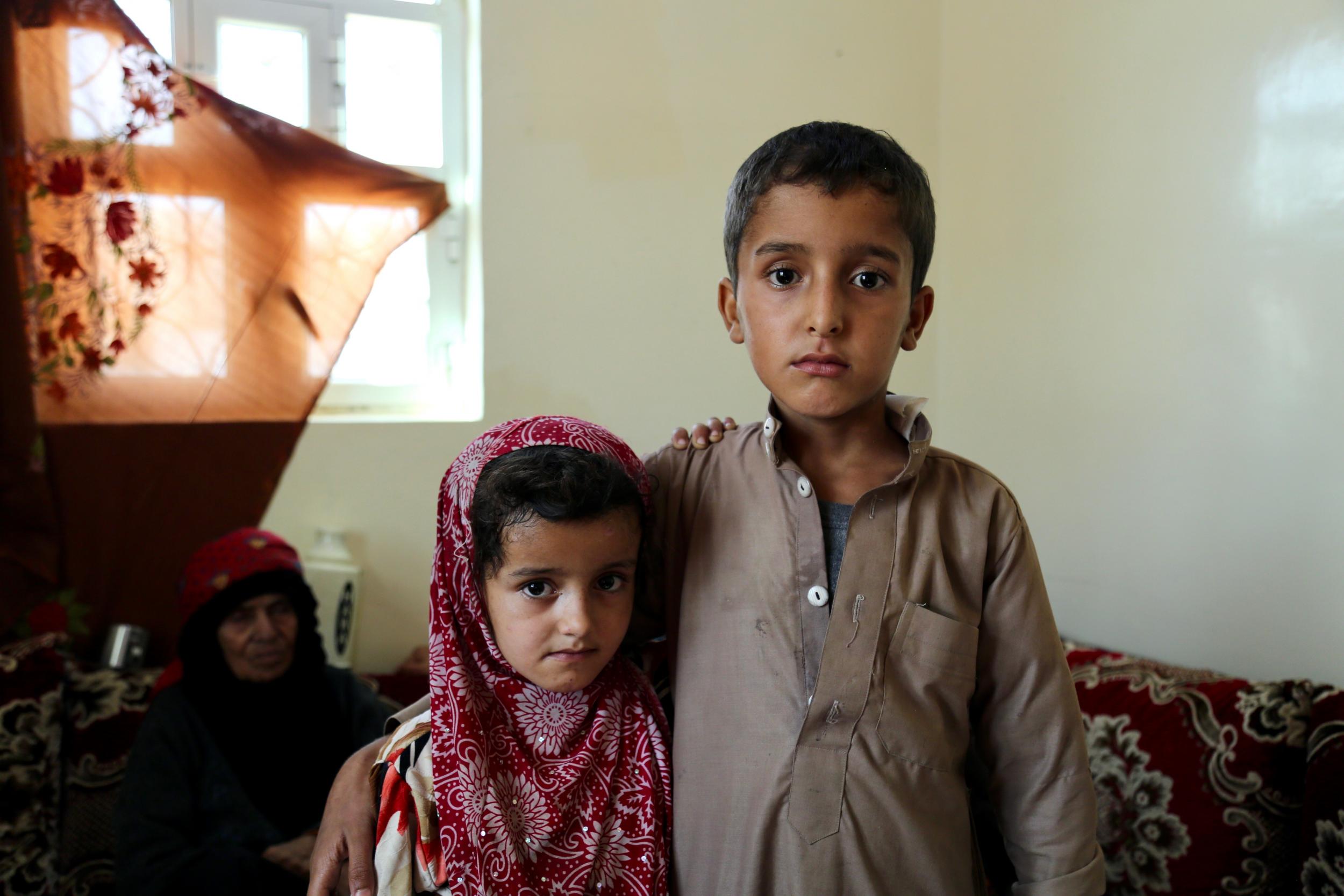'My wounds still hurt and I am very afraid': Yemen's civil war in the words of its forgotten children
'I have nightmares at night – I see aircraft hitting our house again and again,' says six-year-old Noor
Your support helps us to tell the story
From reproductive rights to climate change to Big Tech, The Independent is on the ground when the story is developing. Whether it's investigating the financials of Elon Musk's pro-Trump PAC or producing our latest documentary, 'The A Word', which shines a light on the American women fighting for reproductive rights, we know how important it is to parse out the facts from the messaging.
At such a critical moment in US history, we need reporters on the ground. Your donation allows us to keep sending journalists to speak to both sides of the story.
The Independent is trusted by Americans across the entire political spectrum. And unlike many other quality news outlets, we choose not to lock Americans out of our reporting and analysis with paywalls. We believe quality journalism should be available to everyone, paid for by those who can afford it.
Your support makes all the difference.As MPs prepare to debate the worsening humanitarian crisis in Yemen, the tragic suffering of some of the conflict's youngest victims has come to the fore.
Two years since the civil war began, at least 1,546 children have been killed and 2,450 maimed.
Nine-year-old Ali wears two hearing aids and barely speaks after an airstrike hit a building near his home in Sa’ada Governorate. The blast threw him from a window and he fell two stories, before landing on his neck.
“Blood was coming out of Ali’s ears and nose," his mother Enas said. "Blood was even coming out from his mouth… it was hard for him to even breathe.”
She added: “We took shelter in a small ground room that was made from mud. It was the most horrible night of our lives. Ali was injured and we couldn’t take him to the hospital – there were the sounds of the flying jets and missiles falling one after the other very close to our home.”
Khalil and his sister Noor, aged nine and six, were peppered with shrapnel when an airstrike hit their home on New Year’s Day. The attack killed their grandfather, three-year-old cousin and three guests.
Khalil has since stopped going to school and Noor is too afraid to leave the house.
“I was playing in the yard with my brother, and then we heard the missile coming towards us," Noor said, adding that she was "so scared," she kept her eyes closed.
“My wounds still hurt and I am very afraid when I hear aircraft overhead," she said. "I have nightmares at night – I see aircraft hitting our house again and again. My brother and I cannot sleep properly. Sometimes I wake up because I hear my brother Khalil shouting while he is asleep.”

Leading charities believe all parties involved in the conflict - which has displaced more than three million people - are guilty of violating international law, with reports of homes, schools, and hospitals being targeted.
The bloodshed started in March 2015 after an opposition offensive led by Houthi rebels drove the government out of the capital Sana’a, sparking an intervention by Saudi Arabia and its allies to support the internationally-recognised government.
More than 7,600 people have been killed so far in the fight for control between forces loyal to President Abdrabbuh Mansour Hadi and those allied to the rebels.
The UN human rights office said the Saudi-led air campaign, seeing rebel-controlled areas heavily bombarded, was responsible for 60 per cent of civilian deaths – almost 2,300 lives.
British-manufactured weapons, including cluster bombs, have been used in the strikes, despite calls by MPs to suspend sales to Saudi Arabia over war crimes allegations.
Peter Salisbury, a senior research fellow in the Middle East and North Africa programme at Chatham House, said Britain was the principal sponsor of a UN Security Council resolution used by Saudi Arabia to justify its intervention.
“The UK is also a huge arms supplier and provides a great deal of logistical support to Saudi forces,” he told The Independent. “Arguably the UK has also given political coverage to the Saudis by preventing various resolutions and investigations from happening.”
Save the Children is calling for the UK to ban arms sales to Saudi Arabia as the crisis rages. The charity also wishes to see an independent international inquiry into alleged violations of international humanitarian law.
“In this crisis children are not just being bombed – they are also being starved. The Saudi-led coalition is stopping vital supplies getting in by sea, while warring parties are detaining aid workers and obstructing deliveries by land,” Save the Children’s Interim Country Director for Yemen Grant Pritchard said.
“Millions of children and their families have no idea where their next meal is coming from, or where the next bomb will fall.”
Tuesday’s meeting will see MPs debate the motion: “That this House notes the worsening humanitarian crisis in Yemen; and calls upon the Government to take a lead in passing a resolution at the UN Security Council that would give effect to an immediate ceasefire in Yemen."
A landmark judgement to determine the legality of British arms transfers to Saudi Arabia is also expected to be announced in the near future.

Join our commenting forum
Join thought-provoking conversations, follow other Independent readers and see their replies
Comments